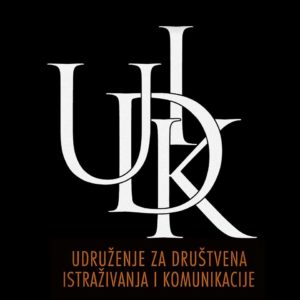 The Association for Social Research and Communication (UDIK) reminds the public of the anniversary of the war crimes that took place in Pionirska Street and Bikavac in Višegrad in June 1992.
The Association for Social Research and Communication (UDIK) reminds the public of the anniversary of the war crimes that took place in Pionirska Street and Bikavac in Višegrad in June 1992.
In the Pionirska Street Fire, on 14 June 1992, a group of Bosniak civilians were locked en masse in the house of Adem Omeragić in Višegrad. The house was set ablaze and the occupants were left to burn to death. About seventy Bosniak women, children and elderly men, most of them from the village of Koritnik, were confined in a house in Pionirska Street by cousins Milan and Sredoje Lukić, leaders of the paramilitary unit called Avengers. The youngest victim was two days old. A similar scenario happened on June 27, when approximately seventy Bosniak civilians were forced into one room in the house of Meho Aljić in the settlement of Bikavac, near Višegrad. After the captives were robbed, the house was set on fire and the occupants were burned alive. According to the testimony of Zehra Turjačanin before ICTY, there were many children in the house, the youngest less than one year old. Such crimes were repeated at several other locations in Višegrad.
For war crimes in Višegrad the ICTY sentenced Milan Lukić to life imprisonment, Sredoje Lukić to twenty seven years, and Mitar Vasiljević to fifteen years in prison. In 2017, with the publication “War crimes in Višegrad – verdicts”, UDIK documented nine cases for war crimes committed in Višegrad brought before the Court of Bosnia and Herzegovina and the Supreme Court of the Federation. They were sentenced Boban Šimšić, Dragan Šekarić, Miloš Pantelić, Momir Savić, Nenad Tanasković, Novo Rajak, Oliver Krsmanović, Predrag Milisavljević, Vitomir Racković and Željko Lelek. In March 2020, the State Court sentenced Radomir Šušnjar to 20 years in prison. Milomir Đuričić and Vukadin Spasojević are currently being tried before the State Court for crimes committed against the Bosniak population in the Uzamnica camp in 1992 and 1993.
Unfortunately, Višegrad is known today as a town of femicides, child killers and as a place of monstrous crimes committed by members of various formations of the Army of the Republika Srpska (VRS). According to the Institute for Missing Persons of Bosnia and Herzegovina, 467 persons are still missing, while 453 persons from Višegrad have been identified. Pionirska, Bikavac, Uzamnica, Vilina Vlas and other locations are real examples of the nature of war crimes in the Višegrad area. The results of the systematic extermination of the non-Serb population are clearly visible today in the almost mono-ethnic structure of the Višegrad population.
The process of truly dealing with the past is not possible without prosecuting those responsible for war crimes. An inevitable and important step forward is the finding of the remains of the murdered. We hereby appeal to all competent institutions to have much more conscience and will when it comes to Višegrad victims. It is necessary to speed up the process of identifying missing persons in the Višegrad area, because families are still waiting for justice and the truth thirty years later. Also, we appeal to all the citizens of Višegrad who have any information about the fate of their neighbors to finally speak about it and so that the remains of the victims of the Pionirska Street, Bikavac and other Višegrad execution sites can be buried properly.
Today we remember all the war victims from Višegrad and its surroundings.
 UDIK Udruženje za društvena istraživanja i komunikacije
UDIK Udruženje za društvena istraživanja i komunikacije

